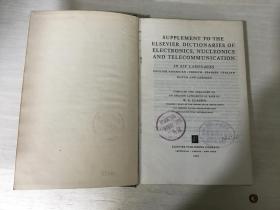随着科技的进步,电子词典日益普及,但传统印刷词典是否会被取代成为了一个热议的话题。电子词典具有便捷性、实时更新等优点,但也存在依赖电力、阅读体验可能不如纸质书籍等缺点。尽管电子词典在特定场合有其优势,但传统印刷词典仍具有不可替代的地位。电子词典与传统印刷词典各有优劣,未来两者将共存发展,电子词典不能完全取代传统印刷词典。
In recent years, the rise of technology has transformed the way we interact with information. This transformation has also extended to the realm of dictionaries, with the advent of electronic dictionaries that are becoming increasingly popular. However, this shift has led to a question: will electronic dictionaries replace traditional print dictionaries? To answer this question, we need to explore the advantages and disadvantages of both formats.
Advantages of Electronic Dictionaries
1、Convenience and Portability: Electronic dictionaries are highly convenient as they can be carried anywhere and accessed at any time. They are lightweight and can be easily stored on smartphones, tablets, laptops, and other electronic devices.
2、Real-time Updates: Electronic dictionaries can be updated in real-time, ensuring that users have access to the latest words, phrases, and definitions. This is particularly useful for language learners who need to keep up with the latest additions to a language.
3、Multimedia Content: Electronic dictionaries often provide multimedia content such as pronunciations, examples, and even videos. This multimedia content enhances the learning experience and makes it more interactive.
4、Search Functionality: Electronic dictionaries provide advanced search functionality that allows users to search for words based on various criteria such as synonyms, antonyms, or related phrases. This functionality makes it easier for users to find the information they are looking for.
Disadvantages of Electronic Dictionaries
1、Dependency on Electricity: Electronic dictionaries require electricity to function. In situations where there is no power supply, they become unusable. This can be a major drawback for people who need to access dictionaries in remote areas or during power outages.
2、Distractions: Electronic dictionaries come with various features and functionalities that can be a distraction for users. While these features enhance the learning experience for some, they can be a hindrance for others who simply want to look up a word quickly.
Advantages of Print Dictionaries
1、No Need for Electricity: Print dictionaries do not require electricity to function, making them a reliable tool in situations where there is no power supply.
2、Focused Learning: Print dictionaries provide a focused learning experience as they do not come with the additional features and functionalities that can be found in electronic dictionaries. This allows users to focus on the word they are looking up without any distractions.
3、Physical Feel: Some people prefer the physical feel of holding a book or dictionary in their hands. The act of flipping pages and finding words provides a different kind of satisfaction for some users.
Disadvantages of Print Dictionaries
1、Limited Content: Print dictionaries can only contain a limited amount of information due to space constraints. Updating print dictionaries also takes time and effort, which means users may not have access to the latest words and phrases.
2、Bulkiness: Print dictionaries are bulky and take up a lot of space. They can be cumbersome to carry around, especially for students who need to take multiple dictionaries for different subjects.
Considering the advantages and disadvantages of both electronic and print dictionaries, it is evident that both formats have their own unique strengthss and weaknesses. While electronic dictionaries offer convenience, real-time updates, multimedia content, and advanced search functionality, they also suffer from issues such as dependency on electricity and potential distractions. On the other hand, print dictionaries provide a focused learning experience, are reliable in situations without power supply, and have a physical feel that some users prefer. However, they are limited in content and bulkiness.
Therefore, it is unlikely that electronic dictionaries will completely replace print dictionaries in the foreseeable future. Both formats will coexist, with electronic dictionaries catering to users who need convenient access to information and multimedia content, while print dictionaries catering to users who prefer a focused learning experience and the physical feel of a book. Ultimately, the choice between an electronic dictionary and a print dictionary depends on individual preferences and needs.




 京公网安备11000000000001号
京公网安备11000000000001号 京ICP备11000001号
京ICP备11000001号
还没有评论,来说两句吧...